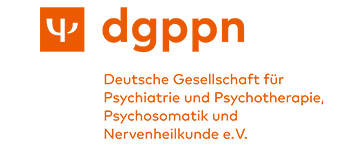Please note that health information can only support the conversation with a psychotherapist or physician: It should never be a substitute for it!
What is generalized anxiety disorder?
People with generalized anxiety disorder suffer from a constant feeling of worry and tension with regard to everyday events and problems. The worries relate to various areas about which other people also worry, e.g. that oneself or one's family could become seriously ill or have an accident. However, in people with generalized anxiety disorder such worries are much more clearly pronounced than in other people, meaning that their everyday lives can be strongly impaired. It is normal to worry in certain situations: For instance, somebody working at a company where things are going badly might worry about losing his job. But people with generalized anxiety disorder worry excessively, even if there is no particular danger. Moreover, they are barely able to control their worries, if at all.
The diagnosis of "generalized anxiety disorder" applies when there are worries and tension regarding everyday events for at least six months and various physical and psychological symptoms, for example:
- Heart palpitations
- Outbreaks of sweating
- Butterflies in the stomach
- Dizziness
- Fear of going mad or dying
- Hot flushes or chills
- Muscular tension
- Difficulties concentrating
- Irritability
- Difficulties falling asleep
Sufferers often try to avoid triggers for their anxieties (e.g. reports about accidents), or try, for example, to reassure themselves that their family members are well and that nothing is going to happen. As family members often also experience the worries as a burden, conflicts can arise.
How frequent are generalized anxiety disorders?
Around 5 out of 100 people develop a generalized anxiety disorder in the course of their lives.
Women are about twice as frequently affected as men.
While other anxiety disorders usually emerge in adolescence or early adulthood, with generalized anxiety disorders, this is rather rare. Generalized anxiety disorders frequently occur for the first time between the ages of 35 and 45.
Are there different forms and progressions?
Most people suffering from generalized anxiety disorder also suffer from other mental illnesses. The most frequent are parallel affective disorders (e.g. depression), other anxiety disorders and somatoform disorders.
If, in addition to the generalized anxiety disorder, further illnesses are simultaneously present, the disorder more frequently takes a chronic course.
If the illness is not treated, there is a high risk that it will remain for a long time, although there are frequently fluctuations in the degree of severity: Many patients experience times when they are free of symptoms. However, in approximately half of sufferers, complaints will re-emerge later on. Moreover, it takes many sufferers a long time before they seek help.
How does generalized anxiety disorder emerge?
There are various causes and explanations for how and why an anxiety disorder can emerge:
Influences which one has inherited (genetic influences) can play a role in the development of anxieties.
In people with generalized anxiety disorder, it is possible to find more activity in certain areas of the brain than in other people. It is presumed that in people with anxiety disorders, neurotransmitters in the brain which ensure relaxation are less present or might be less effective.
Some people who develop an anxiety disorder did not have a secure attachment as children, e.g. to their parents or other close attachment figures. For example, they sometimes experienced the behaviour of their close attachment figures as unpredictable.
For people with generalized anxiety disorder, it is often more difficult to endure the fact that one does not have "absolute certainty" (e.g. in road traffic, at the workplace). They react very sensitively to stimuli that might present a danger. Ambiguous stimuli (i.e. events that can be harmless or threatening) are more likely to be assessed as threatening. Sufferers believe that they cannot change or control things, which in turn triggers anxiety.
Many patients assume that by worrying, they can protect themselves against disappointments or avert a misfortune. The idea hidden behind these positive assumptions about worries is as follows: If, as a precaution, you worry that something might happen, you are not disappointed if it really does happen.
How do you find out if you have generalized anxiety disorder?
If the symptoms and signs described here apply, generalized anxiety disorder might be a reason. In that case, it is highly recommendable to seek out a physician or psychotherapist. An anxiety disorder rarely disappears "of its own accord".
In a discussion, the physician will ask about individual complaints, your general state of health, family history, and physical illnesses, and will check whether you have generalized anxiety disorder. Questionnaires help the therapist to assess the severity of the illness and to clarify whether other psychological problems should be considered as a cause. A physical examination can clarify whether the symptoms – particularly the physical complaints – have a physical cause.
How is generalized anxiety disorder treated?
As treatment for generalized anxiety disorder, it is worth considering psychotherapy or medications – above all so-called selective serotonin reuptake inhibitors (SSRIs), selective serotonin-noradrenalin-reuptake-inhibitors (SNRIs) or the active ingredient pregabalin. The aim of the treatments is to reduce the anxiety to a bearable degree.
So-called benzodiazepines (medication that has a calming effect) can help in the short term, but should be prescribed only in very exceptional cases, since - in contrast to other drugs - they can be addictive.
Through psychotherapy, sufferers can learn to cope with their worries and to reduce the accompanying physical and psychological complaints (e.g. relaxation techniques) so that they are no longer such a burden. The procedure which has been best examined and has proved to be effective in the long term is cognitive behavioural therapy.
If a patient would prefer to be treated with psychodynamic psychotherapy procedures or the behavioural therapy has not been effective, these procedures can also be applied. However, so far, they have been less well examined for generalized anxiety disorder than behavioural therapy.
What can friends and family do?
Close attachment persons (e.g. relatives, partner) are usually also affected, as the sufferers often integrate them into their worries, e.g. want to reassure themselves that nothing bad has happened or will happen, and consequently, for instance, telephone their attachment persons frequently.
It is helpful for family members to be well informed about the generalized anxiety disorder. As far as possible, they should avoid constantly reassuring the sufferer, as although this often helps in the short term, in the long term it maintains the worries.
For their own well-being, it is important that family members do not limit themselves too much. For example, they should not refrain from activities that give them pleasure because the sufferer would worry. If the anxiety illness of the partner, family member or friend becomes too much of a burden, family members can also get help from self-help groups, advice centres, physicians and psychotherapists.



![Information [br] [m]Generalized anxiety disorder[/m]](/cache/com_pagebuilder/c97ffd6b296148e82961056377732c77.jpg)


